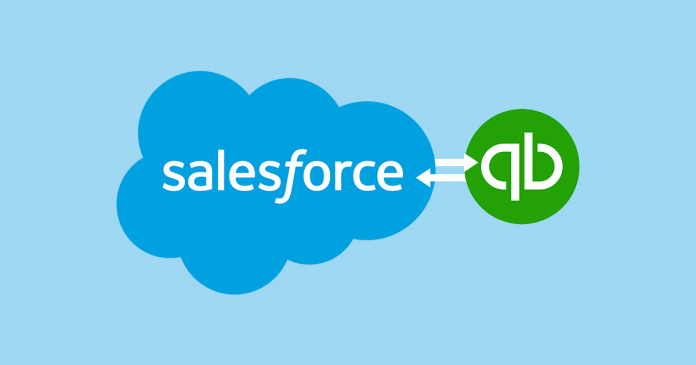
Businesses are always looking forward to scale digitally with the help of latest technologies. Scaling businesses through digital innovation is always a great idea. Salesforce and Quickbooks have been the most complacent cloud-computing technologies taking over long-term business integrations.
Through this blog, I am going to talk about Salesforce and Quickbooks Integration helping businesses in the long run.
Salesforce CRM system is undoubtedly the number #1 CRM focusing on things that really matter in business and drive results.
But what will happen when you combine the benefits of accounting software i.e Quickbooks and take advantage of Salesforce Quickbooks Integration, which will give you full visibility of your business.
Through Quickbooks Salesforce Integration, you will have a 360-degree view of how your company is running and where you can make improvements to make your business more profitable.
Now let’s run through the benefits of Quickbooks and Salesforce for your business and how this integration helps businesses in the longer run.
Why should you choose Quickbooks as your accounting software?
When you are looking for accounting software to manage expenses, invoices and billing, you can come across tons of options available online to choose from. The best out of them is Quickbooks from Intuit, an GST accounting software emerging out as a preferred choice with over 3.6 million QuickBooks online subscribers.
With Quickbooks, you can easily manage your accounting data over the cloud to track sales, create and send invoices and know how your business is doing at any time.
While you are a small business or an enterprise, Quickbooks fit in all business scope and scenarios.
Some of the diminishing Quickbooks accounting features are:
- Invoicing: Create customized, professional and expert invoices & estimates in minutes.
- Accounting Reports: With customizable dashboards and accounting reports, you can easily check on how your business is performing.
- Cloud Accounting: As the entire data is deployed over the cloud, you can easily track, manage, edit & update accounting information from anywhere & everywhere through mobile phones, tablets or laptops.
- Online Banking: Online Banking Integration feature will help in updating your transactions and bank statements over the time.
- Cash-flow Management: The cash-flow management feature allows you to schedule repeated payments, bills for vendors to be paid on time without delays.
You can check out Quickbooks pricing section here: https://quickbooks.intuit.com/in/pricing/
Why is Salesforce CRM Beneficial for Small-Scale Business?
Salesforce CRM provides businesses a platform for marketing and customer service. Salesforce is yet another a powerful cloud-computing software for managing businesses performance under a single roof.
Like Quickbooks, Salesforce has more than 150,000 customers trust Salesforce to help drive results for sales, service, and marketing.
For small-scale businesses, Salesforce CRM helps in moving deals faster by tracking customer information and interactions in one place.
Customer relationship management (CRM) centralizes that data so you can manage sales processes, help customers faster, and market smarter.
Features of Salesforce CRM for Small-Scale Businesses are:
- Enhanced Communication: For Small-Scale Businesses, Salesforce CRM is the single point of contact for your customers. As your customer’s data has been deployed over the cloud, thus you can connect with your customers from anywhere or everywhere through your mobile phone, laptops or even tablets.
- Improved Customer Service: Salesforce CRM helps in improving your customer service as soon as a customer contacts your business, your customer service representatives will be able to access all the available customer information of their past orders, preferences, etc thereby assisting them in finding a solution.
- Improved Data Analytics and Reporting: Salesforce CRM helps in integrating your data with data integration tools and plug-ins to create customisable dashboards and performance reports to track sales and goals achieved throughout your business performance year.
- Enhanced Automation: Salesforce CRM helps in automating mundane daily tasks so that your customer representatives focus more of their efforts towards closing leads and resolving customer pain points, while the automated CRM system takes care of other details.
- Improved Efficiency: Salesforce CRM helps in improving efficiency across your sales, marketing and customer service team. With this improved efficiency, you can tag teams to get the right information to the right individual. With this new found ease, teams can seamlessly work together to improve the bottom line.
- This is how Salesforce CRM helps Small-Scale Business in converting prospective leads into opportunities for better sales conversion.
You can check out Salesforce CRM solution for Small-Scale Businesses here: https://www.salesforce.com/in/solutions/small-business-solutions/overview/
Now imagine how Salesforce and Quickbooks integration help Small-Scale Businesses? Let’s have a look at how this integration can impact businesses in the long run.
How Quickbooks and Salesforce Integration help Small-Scale Businesses?
Salesforce integration with Quickbooks gives you a 360 degree view into how your business is performing and where it can be optimized. Quickbooks and Salesforce work together to import data between sales and accounting, including customer details, sales orders, expenses, and invoicing.
Connecting with QuickBooks reduces redundant data, thereby increasing productivity, and drives more insights & analytics for better sales forecasting.
Some of the major benefits of Quickbooks Salesforce Integration are:
- Automate workflow without much expertise.
- Create, update & edit transactions such as billing, payment, invoice, etc.
- Improved business visibility .
- Improved data security.
- Allows faster workflow and improves cash flow.
- Saves time as the data flow is bidirectional after integration.
- Perform in-depth sales analysis within Salesforce.
- Go through open balances and credit limits from within Salesforce.
- Track each and every customer’s details with the help of Salesforce CRM.
- Analyze sales histories for each prospect or target customer.
This is how Salesforce and Quickbooks integration help businesses. But now the question is how to integrate Quickbooks and Salesforce together?
To integrate Salesforce and Quickbooks together, you need to install a third-party application which can be easily configured or hosted within your working environment.
There are tons of applications available in Salesforce AppExchange to integrate Quickbooks and Salesforce together.
These applications come with different pricing options, features and USPs. You have to make a confined choice after going through the application specifications and features.
You can always compare the applications before making a final choice. As a business you must consider these pointers before integrating Salesforce and Quickbooks via third-party applications.
Conclusion:
Small-Scale businesses are finding it tough to sustain specially during these tough times where this COVID19 Pandemic has slowed down the growth of businesses.
To upscale again, Salesforce and Quickbooks integration can work wonders for your business. At this time, managing everything under one-roof from sales to marketing to customer service serves as a boon for businesses with less manpower and operations budget.
Redundant data errors, seamless business operations and increase in sales opportunities have paved the path for Quickbooks Salesforce Integration for small-businesses.







